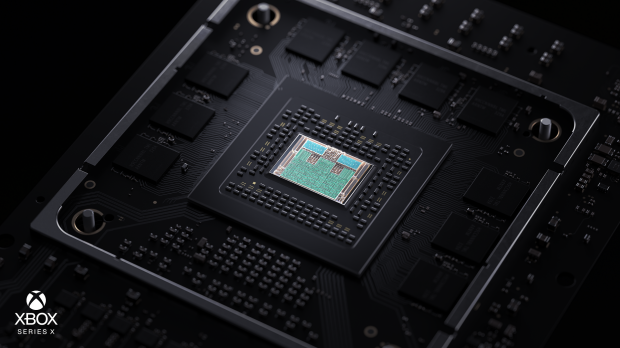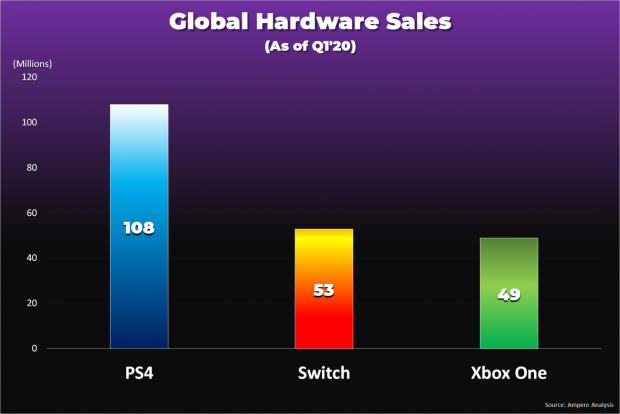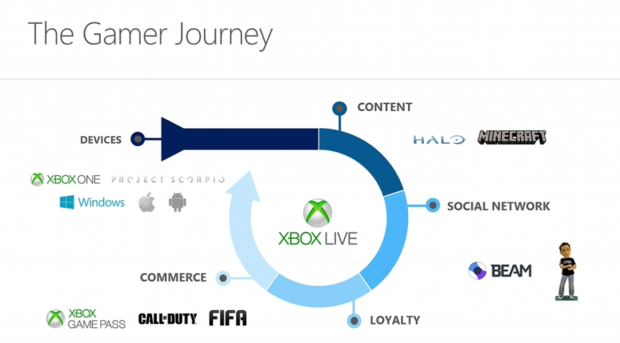In a recent interview with GamesIndustry.biz, Xbox boss Phil Spencer says next-gen exclusives basically go against the spirit of modern choice-driven gaming. But in reality next-gen exclusives just go against the Xbox business model.

Once again Microsoft and Sony are kicking off a new console gen by doing very different things. Sony plans to release next-gen PlayStation 5 exclusives that're built from the ground up specifically for the console. Microsoft, on the other hand, won't have Xbox Series X exclusives, and its first-party teams have to make their games playable on four separate SKUs at launch. The reasoning is quite simple: Microsoft's business model is very different than Sony's.
"Sorry, I am a bit soap boxy with this one. Gaming is about entertainment and community and diversion and learning new stories and new perspectives, and I find it completely counter to what gaming is about to say that part of that is to lock people away from being able to experience those games. Or to force someone to buy my specific device on the day that I want them to go buy it, in order to partake in what gaming is about," Spencer said.
"Gaming is bigger than any one device, and that is something as an industry that we've embraced all up as we bring more and more players in. I think it's vital to the role that gaming can play on the planet."
This is a great sentiment on paper. But Microsoft's moneybooks show it's less about player choice and goodwill and more about making money.
Microsoft's business model shuns exclusion and embraces a "no man left behind" approach.
The idea here is to cast the widest net possible to rake in as much monetization as it can. It's not about gamers, nor is it really about choice--those things are byproducts of a cyclic business model driven by subscriptions, digital engagement, and game purchases. It just so happens that unified Xbox LIVE integration, cloud saves, cross-play, cross-buy, and services like Game Pass are massive breadwinners for continued and sustained billion-dollar earnings.
Microsoft's service-based framework is the glue that tethers the platforms together. The company wants everyone playing its games on every device, whether it be its myriad of Xbox consoles, your phone, your laptop or desktop PC. As such, it behooves Microsoft to take a specific stance on the next console generation and not push next-gen exclusives on the Xbox Series X.

The huge console sales gap forced Microsoft to change gears with Xbox and transition to the service-based multiplatform ecosystem it is today.
With Sony's PlayStation 4's mighty 110 million+ lead over the 49 million+ Xbox One sales market, Microsoft has adapted its gaming branch out of necessity. Instead of trying to play by Sony's rules with the closed ecosystem route, Microsoft chose to unify PCs and Xbox consoles through Windows 10--a move that will benefit the games-maker for decades to come. Xboxes are no longer consoles, but more specialized and gated-off Windows 10 PCs.
So instead of jumping right to the next console generation and locking existing gamers out of specific experiences, Microsoft has chosen to bring all of its first-party games to every Xbox console. There won't be any Xbox Series X exclusives. It's not the games that're exclusive, but the performance.
Sure this is great for gamers. But it's even better for business because it doesn't disrupt the well-oiled machine that is Microsoft's engagement cycle.

Read Also: Why Xbox LIVE is the center of Xbox, not consoles
The goal with the Xbox business is to make as much money as possible on as many devices as possible, and through as many routes as possible. Microsoft has subscriptions like Xbox LIVE, Project xCloud, and Game Pass, which are all unified together in a tidy package that carry across all supported devices.
This level of access is predicated on availability and smoothly-operating services that aren't fractured. Once you start releasing next-gen exclusives into the mix, the whole cycle gets thrown off. Also remember Microsoft doesn't really care about hardware. It makes most of its money from software and services. So why disrupt everything for the sake of hardware and in-game performance?
Next-gen exclusives goes against the very ethos of the Xbox business strategy. Right now Xbox isn't a console; it's a service that binds numerous platforms together through monetization, content, and social infrastructures.
Sony, on the other hand, is fine with pushing the new generation forward. It wants the PlayStation 5 to be a spectacle right from the start and to wow gamers with enthusiast-grade console gaming. Sony is banking hard on console sales while it continues riding the coattails of the PlayStation 4's mighty sales lead, which has led to over 1 billion games sold on the platform.
Microsoft will wow gamers too, but moreso as a complete package via its robust DirectX toolsets, Velocity Architecture, amazing backwards compatibility support, and ambitious focus on interconnected services. This emphasis on including every device comes at a cost, though. Microsoft's resources will be spread thin and developers have to compromise their games on older-gen hardware, not the higher-end specialized PC-level specs of the Xbox Series X.
It remains to be seen if Xbox Series X gameplay performance will be held back by Microsoft's cross-gen mandate, but ultimately it's important to understand Microsoft's business aspirations.
The Xbox Series X releases Holiday 2020, but no release date or pricing has been announced. Check below for more information on specs:
Xbox Series X confirmed details (Formerly Project Scarlett):
- 8-core, 16-thread Zen 2 CPU
- 12.15 TFLOP Navi GPU on RDNA 2 architecture
- 7nm+ AMD SoC
- 16GB GDDR6 memory
- 2x Xbox One X's 6TFLOPs of GPU perf
- 4x CPU power of Xbox One generation
- Can deliver up to 40x more performance than Xbox One in specific use cases
- Adaptive sync supported
- Super-fast SSD that can be used as VRAM
- Supports 8K resolution (likely media playback)
- 120FPS gaming
- Variable refresh rate (adaptive sync/FreeSync)
- Variable Rate Shading
- Raytracing confirmed with dedicated raytracing cores
- Backward compatible with thousands of Xbox, Xbox 360, and Xbox One games
- New controller with a dedicated share button
- Compatible with Xbox One accessories


